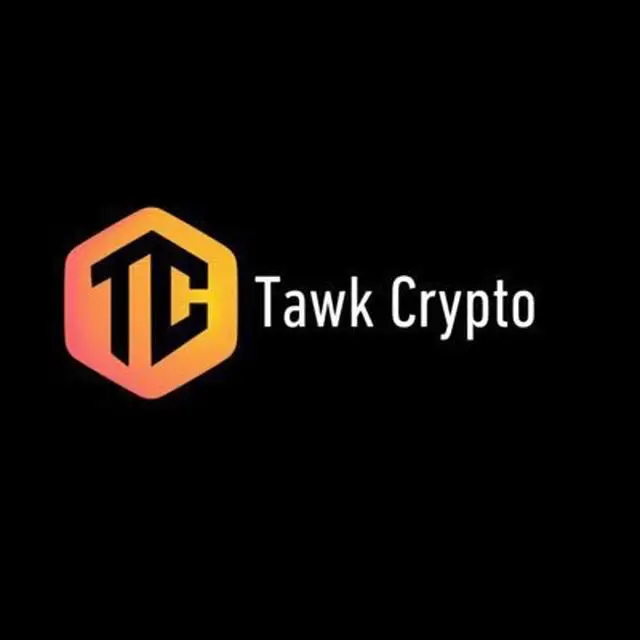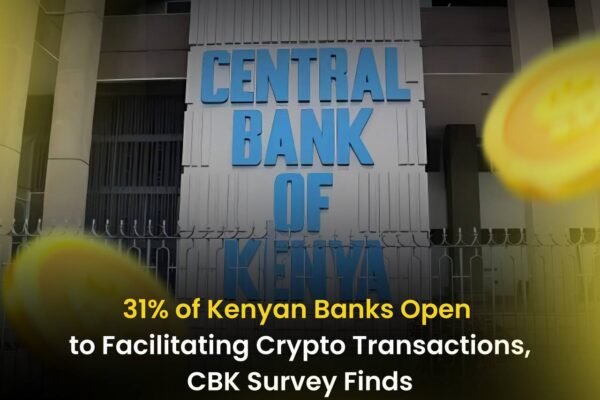

A Look at the State of Crypto Regulation Across Africa in 2024
Cryptocurrency adoption in Africa has skyrocketed over the past few years, fueled by the continent’s unique blend of economic challenges and the immense potential of blockchain technology. For many Africans, crypto is more than just a speculative investment; it’s a way to survive hyperinflation, dodge the high costs of remittances, and navigate limited access to traditional banking services. Whether it’s young Nigerians trading Bitcoin to hedge against the naira’s freefall or Kenyan entrepreneurs leveraging USDT for business transactions, the crypto revolution is alive and thriving across Africa.
But with great power comes great responsibility—and regulation. The rapid growth of the crypto market has pushed governments and regulatory bodies into action. Their challenge? Finding the sweet spot between encouraging innovation and protecting consumers, while also addressing concerns around financial stability and crime. By the end of 2024, a handful of African countries had risen to the challenge, putting in place comprehensive legal frameworks that could serve as models for the rest of the continent. Here’s a closer look at how regulation is shaping up across Africa, told with the flair and resilience that defines this great continent.
South Africa: Leading the Way with Comprehensive Regulation

South Africa is setting the gold standard for crypto regulation in Africa, and it’s doing so with precision and ambition. Back in October 2022, the Financial Sector Conduct Authority (FSCA) officially classified crypto assets as “financial products” under the Financial Advisory and Intermediary Services (FAIS) Act. This groundbreaking move provided the legal clarity that many in the industry had been clamoring for. Fast forward to 2024, and the FSCA has issued a staggering 248 licenses to Crypto Asset Service Providers (CASPs). These licenses weren’t handed out like flyers at a street rally; applicants had to meet some of the toughest requirements in the game, covering everything from governance structures to robust security protocols and stringent anti-money laundering (AML) measures.
To further tighten the regulatory net, South Africa also amended its Financial Intelligence Centre Act (FICA), effectively designating CASPs as accountable institutions. What does this mean in practice? Well, these companies are now legally required to implement AML measures, conduct thorough customer due diligence, and report any suspicious transactions to the relevant authorities. This has significantly reduced the risk of illicit financial activities within the crypto space and has fostered trust among both users and traditional financial institutions.
The impact of these regulations has been transformative. South Africa now boasts a thriving crypto ecosystem, attracting not just local startups but also global crypto heavyweights looking for a stable and regulated environment to operate in. For example, major exchanges like Binance and Luno have ramped up their presence in the country, while homegrown platforms like VALR are scaling rapidly, benefiting from the clear regulatory framework. The FSCA’s proactive approach has also encouraged financial institutions to explore partnerships with crypto firms, bridging the gap between traditional finance and the digital economy.
Perhaps what’s most impressive is how South Africa’s regulatory framework strikes a delicate balance between fostering innovation and ensuring financial stability. By providing clear guidelines and enforcing them rigorously, the country has managed to create a level playing field where businesses can thrive without compromising on consumer protection or systemic integrity. This is no small feat, especially in a region where regulatory uncertainty has often been the norm.
Moreover, South Africa’s leadership in crypto regulation is inspiring other African nations to follow suit. Countries like Namibia and Botswana are looking to South Africa’s model as they craft their own regulatory policies. It’s safe to say that South Africa isn’t just leading the way—it’s setting the pace for what effective crypto regulation can look like across the continent.
Kenya: The Pioneers Without Papers (Yet)

Kenya has earned its nickname, the Silicon Savannah, by being at the forefront of technological innovation in Africa. This innovation extends to cryptocurrency, where Kenya has carved out a name as one of the global leaders in adoption. In fact, according to the 2023 Chainalysis Global Crypto Adoption Index, Kenya ranked 5th worldwide—an impressive feat for a nation where formal regulations are still “in the works.”
What’s fueling this crypto craze? For starters, mobile money penetration in Kenya is unmatched. Platforms like M-Pesa have laid the groundwork for digital financial literacy, enabling millions to transact seamlessly without needing a bank account. Crypto has become a natural next step, offering a way to send remittances, conduct business transactions, and hedge against the ever-fluctuating Kenyan shilling, which depreciated by nearly 15% against the US dollar in 2024.
P2P Platforms: The Unstoppable Force
With limited access to centralized exchanges due to regulatory uncertainty, Kenyans have embraced peer-to-peer (P2P) platforms with open arms. Platforms like Paxful, Binance P2P, and LocalBitcoins dominate the market, providing a workaround for crypto enthusiasts. These platforms allow users to trade directly with one another using payment methods like bank transfers, mobile money, or even cash.
A great example of this grassroots adoption is the rise of crypto-powered remittances. With Kenya receiving nearly $4 billion in remittances annually, crypto offers a faster and cheaper alternative to traditional money transfer services like Western Union or MoneyGram. For instance, sending $100 via Bitcoin could cost as little as $1 in transaction fees compared to $10–$20 through traditional channels.
The CBK’s Crypto Conundrum
Despite this flourishing ecosystem, the Central Bank of Kenya (CBK) has been sounding alarm bells about cryptocurrency since 2018, warning citizens of the risks of scams, volatility, and money laundering. However, these warnings haven’t deterred the country’s tech-savvy youth, who see crypto as a tool for empowerment rather than a threat. The average crypto user in Kenya is under 35 years old, well-educated, and often part of the gig economy or entrepreneurial ecosystem.
The CBK’s skepticism hasn’t gone unnoticed by the government. Spurred by an International Monetary Fund (IMF) visit in early 2024, Kenya is now actively working on a formal regulatory framework. While the details are still under wraps, early whispers suggest that the upcoming policies will aim to:
- Protect consumers by requiring crypto platforms to implement anti-fraud measures.
- Introduce crypto taxes, possibly mirroring Nigeria’s or South Africa’s approaches.
- Foster innovation by creating a sandbox environment for startups and developers.
Innovating Amid Uncertainty
Kenya’s lack of formal crypto laws hasn’t stopped the innovation train. Beyond remittances and trading, crypto is finding unique use cases across the country. For example:
- Small businesses in Nairobi and Mombasa are accepting Bitcoin and USDT as payment to bypass high transaction fees from card processors.
- Farmers in rural areas are experimenting with stablecoins to hedge against market price fluctuations for crops.
- The growing interest in NFTs and the metaverse is putting Kenya on the global map as a creative hub. Kenyan artists and developers are minting NFTs to showcase their work, with some earning in dollars and euros for the first time.
What’s Next for Kenya?
Until formal regulations are enacted, Kenya remains a crypto wild west—an environment where innovation thrives, but risks persist. On one hand, the lack of oversight has allowed grassroots adoption to flourish; on the other, it has left consumers vulnerable to scams and financial loss.
Still, the resilience and adaptability of Kenyans cannot be overstated. Whether it’s using crypto to power cross-border trade or adopting Bitcoin as a savings tool, Kenyans are proving that where there’s a will, there’s a way. As one local crypto trader put it, “The CBK can warn us, but they can’t stop us. Crypto is freedom.”
With formal regulations expected to roll out in 2025, Kenya is poised to solidify its position as a crypto powerhouse in Africa. For now, the hustle continues—one block at a time.
Nigeria: From Ban to Embrace

When it comes to cryptocurrency, Nigeria—Africa’s most populous nation and largest economy—has experienced a whirlwind journey from prohibition to cautious acceptance. As the region’s largest crypto market, Nigeria has consistently ranked among the top global players in cryptocurrency adoption, with millions of Nigerians embracing digital assets to navigate economic challenges like inflation, unemployment, and an unstable currency.
The 2021 Ban and the Rise of P2P
In 2021, the Central Bank of Nigeria (CBN) issued a directive banning all banks and financial institutions from facilitating cryptocurrency transactions. This decision sent shockwaves through the country’s burgeoning crypto community. The CBN justified its stance by citing concerns about money laundering, terrorist financing, and the lack of consumer protection in the crypto space.
But Nigerians, known for their resilience and resourcefulness, found ways to keep the crypto economy alive. They pivoted almost immediately to peer-to-peer (P2P) trading platforms like Paxful, Binance P2P, and Remitano. By 2022, Nigeria became the world’s second-largest P2P Bitcoin market, with more than $1 billion in annual trading volume. Crypto became indispensable for a variety of use cases:
- Remittances: Crypto offered a faster, cheaper alternative to traditional money transfer services, with Nigeria receiving over $20 billion annually in remittances.
- Hedging against inflation: As the naira’s value plummeted (losing over 40% of its value in 2024 alone), Nigerians flocked to stablecoins like USDT and USDC to preserve their savings.
- Business transactions: Entrepreneurs and freelancers used crypto to bypass high fees and restrictions in international trade and payments.
The Ban Is Lifted: A Turning Point
In a landmark move, the CBN lifted its crypto ban in December 2023, signaling a shift from resistance to cautious acceptance. The change came as the Nigerian government faced mounting pressure to align with global trends and tap into the economic opportunities that the crypto industry offers.
This shift was partly influenced by the success of Nigeria’s eNaira, a central bank digital currency (CBDC) launched in 2021. While initial adoption of the eNaira was sluggish, it paved the way for broader conversations about digital assets. By 2023, Nigeria realized that regulating cryptocurrencies instead of banning them outright could unlock new avenues for economic growth.
The SEC Takes Charge: Digital Assets Rules and Regulatory Incubation
In 2022, Nigeria’s Securities and Exchange Commission (SEC) introduced the Digital Assets Rules, creating a legal framework for cryptocurrency trading and token issuance. This was a game-changer for the industry, as it provided clarity and legitimacy for businesses operating in the crypto space.
Taking things a step further, in 2024, the SEC launched the Regulatory Incubation (RI) Program to nurture crypto startups. This program allows companies to operate under a controlled environment while complying with regulatory requirements. Notable startups like Busha Digital and Quidax received “Approval-in-Principle” licenses under this initiative, giving them the green light to expand their services responsibly.
- Busha Digital, for example, introduced a savings feature that allowed users to earn interest on crypto holdings, attracting a younger demographic seeking alternatives to traditional banking.
- Quidax, on the other hand, launched cross-border payment solutions, cementing its position as one of Africa’s leading crypto exchanges.
The RI program has been praised for striking a balance between fostering innovation and mitigating risks, demonstrating Nigeria’s commitment to creating a sustainable crypto ecosystem.
A Growing Appetite for Crypto
As of 2024, an estimated 35% of Nigerians aged 18 to 60 owned or traded cryptocurrencies—a staggering figure that underscores the country’s outsized role in the global crypto landscape. With over 200 million people, Nigeria’s youthful, tech-savvy population has embraced crypto as a means to achieve financial independence and overcome systemic economic challenges.
The government is also exploring ways to tax crypto transactions, signaling its recognition of the sector’s potential to contribute to public revenue. While specifics are still under discussion, this move could further legitimize the industry and encourage compliance among traders and businesses.
Nigeria’s Role as a Regional Leader
Nigeria’s evolving approach to crypto regulation has positioned it as a regional leader in Africa’s digital economy. By lifting the ban and implementing clear policies, the country is setting an example for others grappling with how to manage the rise of digital assets.
The transformation from banning crypto to embracing it highlights a critical lesson: when faced with innovation, adaptation is better than resistance. With the SEC’s proactive stance, the lifting of the CBN’s restrictions, and the resilience of its crypto community, Nigeria is well on its way to becoming a global hub for cryptocurrency innovation.
As one Nigerian trader put it, “We’ve gone from fighting the system to being part of it. Crypto is the future, and Nigeria is ready.”
Mauritius: Africa’s Crypto Paradise

When it comes to creating a welcoming and well-regulated environment for cryptocurrency, Mauritius stands out as Africa’s crypto paradise. This small island nation has taken bold steps to position itself as a hub for blockchain innovation and fintech entrepreneurship. While many African countries are still debating how to regulate crypto, Mauritius has already set the stage with a progressive and comprehensive legal framework.
The Game-Changer: The VAITOS Act
Mauritius introduced the Virtual Asset and Initial Token Offering Services (VAITOS) Act in 2022, a landmark piece of legislation that laid the foundation for a thriving crypto ecosystem. The VAITOS Act provides clear guidelines for companies dealing with virtual assets, ensuring a balance between innovation and regulatory oversight. By 2024, the country’s reputation as a crypto-friendly jurisdiction was firmly established, drawing blockchain entrepreneurs and investors from across the globe.
Here’s what makes the VAITOS Act a model for crypto regulation:
- Comprehensive Licensing Requirements
Crypto businesses in Mauritius must obtain licenses from the Financial Services Commission (FSC) to operate legally. These licenses are not handed out lightly. Applicants must meet stringent criteria around governance, operational integrity, and financial stability. This ensures that only legitimate and well-run businesses can operate, reducing the risks of fraud and malpractice. - Strict AML/CFT Compliance
Mauritius has taken a hardline stance against money laundering and terrorism financing. Under the VAITOS Act, all licensed businesses are required to implement robust Anti-Money Laundering (AML) and Combating the Financing of Terrorism (CFT) measures. This includes:- Conducting thorough Know Your Customer (KYC) procedures.
- Monitoring and reporting suspicious transactions.
- Regular audits to ensure compliance with international standards.
- These measures not only protect the country’s financial system but also enhance its credibility on the global stage.
- Tax Advantages
Mauritius is renowned for its favorable tax regime, and the crypto industry is no exception. The island nation offers:- No capital gains tax: Crypto investors can hold their digital assets without worrying about paying taxes on appreciation.
- Income tax on trading profits: While trading profits are subject to income tax, the rates are competitive, making Mauritius an attractive destination for traders and businesses alike.
- Clear Distinction Between Virtual Assets and Security Tokens
Unlike some countries where regulatory ambiguity persists, Mauritius has clearly defined the difference between virtual assets (such as cryptocurrencies) and security tokens. Security tokens are regulated under the country’s Securities Act, ensuring they meet the same standards as traditional financial instruments. This distinction provides clarity for businesses and investors, reducing regulatory uncertainty.
A Magnet for Blockchain Entrepreneurs
Mauritius has become a magnet for crypto startups looking to tap into both African and global markets. The combination of progressive policies, tax advantages, and a strong regulatory framework makes it an ideal base for blockchain entrepreneurs.
- Startups from Africa and beyond are flocking to Mauritius to set up shop, using the island as a launchpad to expand into other regions.
- The country’s strategic location in the Indian Ocean positions it as a bridge between Africa, Asia, and Europe, enhancing its appeal as a hub for international business.
Beyond Regulation: A Thriving Ecosystem
Mauritius is not just about laws and policies—it’s also fostering a vibrant blockchain ecosystem.
- The government actively supports innovation through partnerships with global blockchain organizations and fintech accelerators.
- Universities and training institutes in Mauritius have introduced blockchain and fintech courses, ensuring a pipeline of skilled talent for the industry.
- The country has hosted several blockchain summits and conferences, attracting thought leaders and investors from around the world.
Success Stories
Mauritius’ crypto-friendly environment has already started bearing fruit.
- Blockchain startups in sectors like decentralized finance (DeFi), supply chain management, and green energy are thriving.
- Global crypto exchanges and investment platforms have chosen Mauritius as their base for operations in Africa, citing its regulatory clarity and tax benefits as key reasons.
Challenges and the Road Ahead
While Mauritius has made significant strides, it’s not without challenges:
- Global competition: Other jurisdictions, like Dubai and Malta, also offer attractive conditions for crypto businesses, meaning Mauritius must continue innovating to stay ahead.
- Infrastructure development: To fully support its growing blockchain industry, Mauritius will need to invest in digital infrastructure, including high-speed internet and secure data centers.
Despite these hurdles, Mauritius has proven that proactive regulation and innovation-friendly policies can transform a small island into a global crypto hub. As Africa’s “crypto paradise,” Mauritius offers a blueprint for other nations looking to harness the potential of blockchain technology while ensuring a safe and sustainable environment for all stakeholders.
Seychelles: A Hub for Blockchain Startups

Seychelles, often celebrated as a tropical paradise, is quickly gaining recognition as a rising hub for blockchain innovation. While its pristine beaches and luxury resorts attract millions of tourists, its forward-thinking approach to crypto regulation is drawing an entirely different crowd—blockchain entrepreneurs, investors, and tech enthusiasts.
The Turning Point: The VASP Bill
In August 2024, Seychelles took a major step toward solidifying its place in the crypto ecosystem by passing the Virtual Asset Service Providers (VASP) Bill. This legislation marked the country’s commitment to creating a robust regulatory environment for the blockchain and crypto industries.
Here’s what makes the VASP Bill a game-changer:
- Licensing Requirements for Industry Players
The VASP Bill introduced clear licensing requirements for key players in the crypto industry, including:- Wallet providers offering custodial services.
- Crypto exchanges facilitating the trading of virtual assets.
- Brokers enabling individuals and businesses to access crypto markets.
- To secure a license, businesses must meet strict standards around governance, operational transparency, and cybersecurity. This ensures that only reputable and well-structured companies can operate in Seychelles.
- Alignment with FATF Standards
Seychelles’ VASP Bill was designed in alignment with the Financial Action Task Force (FATF) recommendations, reinforcing the country’s commitment to preventing financial crimes. Licensed entities are required to:- Conduct Know Your Customer (KYC) and customer due diligence (CDD) processes.
- Implement robust anti-money laundering (AML) and combating the financing of terrorism (CFT) measures.
- Report suspicious transactions to relevant authorities.
- This alignment with international standards has boosted Seychelles’ credibility as a trusted jurisdiction for blockchain businesses.
- Consumer Protection Measures
The VASP Bill isn’t just about business—it also prioritizes consumers. Key protections include:- Public education campaigns to raise awareness about the risks and opportunities of crypto investing.
- Requirements for licensed entities to maintain transparency in fees, terms, and conditions.
- Measures to ensure the safety of customer funds, including the segregation of client assets from company accounts.
A Magnet for Blockchain Startups
Thanks to the VASP Bill, Seychelles has become a magnet for blockchain startups and venture capital investments. By offering regulatory clarity, the government has created an environment where innovation can thrive.
- Startups in Decentralized Finance (DeFi): Seychelles is becoming a launchpad for DeFi projects, which aim to disrupt traditional financial systems by offering decentralized lending, borrowing, and trading solutions.
- Tokenization Platforms: Companies exploring the tokenization of real-world assets, such as real estate and commodities, are setting up operations in Seychelles.
- Global Exchanges: Several major crypto exchanges have chosen Seychelles as their base, leveraging its favorable regulatory environment and strategic location for international expansion.
A Strategic Location for Global Impact
Seychelles’ geographical position in the Indian Ocean gives it a strategic advantage as a hub for trade and financial services. Its location serves as a bridge between Africa, Asia, and the Middle East, making it an ideal base for blockchain companies targeting emerging markets.
Government Support and Ecosystem Development
The Seychelles government isn’t just sitting back after passing the VASP Bill—it’s actively supporting the growth of the blockchain ecosystem:
- Fintech Conferences and Events: Seychelles has begun hosting blockchain and fintech summits, attracting global thought leaders and investors to the island nation.
- Collaborations with International Bodies: The government is working with international organizations and blockchain advocacy groups to enhance its regulatory framework and build global partnerships.
- Talent Development: Educational initiatives and training programs are being introduced to equip the local workforce with the skills needed to thrive in the blockchain industry.
Challenges on the Horizon
While Seychelles has made significant progress, there are challenges that need to be addressed:
- Reputation as a Tax Haven: Seychelles has long been perceived as a tax haven, which could raise concerns among international regulators. The government will need to demonstrate its commitment to transparency and compliance to overcome this perception.
- Limited Infrastructure: As the blockchain ecosystem grows, Seychelles will need to invest in digital infrastructure, such as high-speed internet and secure data centers, to support the industry’s expansion.
The Road Ahead
Seychelles has shown that even a small island nation can make a big impact in the world of blockchain and crypto. With the VASP Bill laying the groundwork, the country is well on its way to becoming a key player in Africa’s crypto ecosystem. Its commitment to balancing innovation with consumer protection and compliance serves as a model for other nations looking to embrace the potential of blockchain technology.
Whether it’s DeFi startups, tokenization platforms, or global crypto exchanges, Seychelles is proving that paradise isn’t just for vacations—it’s also for blockchain innovation.
Namibia: From Skeptic to Supporter

Namibia’s journey with cryptocurrency is nothing short of remarkable—a testament to how perceptions can shift as the transformative potential of blockchain becomes undeniable. Once a staunch skeptic, Namibia has now positioned itself as one of Africa’s emerging players in the regulated crypto space.
A Rocky Start: Outright Ban in 2017
Back in 2017, the Bank of Namibia (BoN) adopted a hardline stance, declaring cryptocurrencies illegal under the country’s Exchange Control Regulations of 1961. At the time, the BoN cited concerns over:
- Financial instability due to the unregulated nature of cryptocurrencies.
- The potential for money laundering and terrorism financing.
- The lack of legal protections for users engaging with digital assets.
This effectively shut down any formal crypto activity in Namibia, leaving enthusiasts and businesses to operate in a legal gray area—or not at all.
The Turning Point: Virtual Assets Act of 2023
Fast forward to 2023, and Namibia had a change of heart with the passage of the Virtual Assets Act, marking a significant shift in its approach to crypto. The Act was developed in response to the growing recognition that blockchain technology could address key economic challenges, such as financial inclusion, remittances, and cross-border trade.
The Virtual Assets Act introduced a comprehensive framework aimed at balancing innovation with consumer protection and financial stability. Key provisions include:
- Mandatory Licensing for Virtual Asset Service Providers (VASPs):
- Any entity offering crypto-related services, such as exchanges, wallet providers, or brokers, must obtain a license from Namibia’s financial regulator.
- Licensed VASPs are required to meet stringent standards around governance, operational transparency, and cybersecurity.
- Oversight and Compliance Measures:
- The Act places VASPs under strict oversight to ensure compliance with anti-money laundering (AML) and combating the financing of terrorism (CFT) standards.
- Businesses must conduct customer due diligence (CDD) and report suspicious transactions to regulators.
- Consumer Protection:
- The law emphasizes the importance of protecting users from fraudulent schemes and market manipulation.
- Licensed entities are required to provide clear terms of service and ensure the security of customer funds.
A Thriving Crypto Sector in 2024
By 2024, the impact of the Virtual Assets Act was evident. Namibia’s once-dormant crypto industry had transformed into a buzzing ecosystem:
- Crypto Adoption on the Rise: With regulatory clarity, more Namibians began using cryptocurrencies for payments, savings, and investments.
- Local and International Players: The licensing framework attracted not only local startups but also international crypto platforms looking to establish a foothold in southern Africa.
- Remittances and Financial Inclusion: Crypto is increasingly being used for cross-border remittances, offering a faster and cheaper alternative to traditional money transfer services. This is especially significant in a country where access to traditional banking services remains limited in rural areas.
Supporting Innovation and Growth
The Namibian government has gone beyond regulation to actively support the growth of the blockchain ecosystem:
- Public Awareness Campaigns: Efforts are underway to educate Namibians about the opportunities and risks associated with crypto, helping to build trust in the sector.
- Collaboration with International Bodies: Namibia is working closely with organizations like the Financial Action Task Force (FATF) and regional partners to ensure its regulatory framework aligns with global standards.
- Encouraging Startups: The government has introduced incentives, such as tax breaks and funding opportunities, for blockchain startups developing solutions that address national challenges.
Challenges and the Road Ahead
While Namibia has made significant strides, the journey is far from over. The country faces several challenges as it seeks to establish itself as a crypto-friendly nation:
- Infrastructure Gaps: Limited access to reliable internet and digital infrastructure in rural areas could hinder the widespread adoption of blockchain technology.
- Skepticism Among Older Generations: While younger Namibians are embracing crypto, older generations remain wary, highlighting the need for targeted education efforts.
- Balancing Regulation and Innovation: Ensuring that regulations do not stifle innovation will be key to maintaining momentum in the sector.
Namibia’s Transformation: A Blueprint for Change
Namibia’s journey from banning cryptocurrencies to embracing a regulated crypto market is a powerful story of transformation. It demonstrates that even the most skeptical nations can change their stance when presented with the undeniable benefits of blockchain technology.
Today, Namibia is not just regulating crypto—it is actively fostering an ecosystem where blockchain innovation can thrive. Whether it’s enabling financial inclusion, simplifying remittances, or attracting global investments, Namibia’s evolving crypto landscape is a promising sign of what’s to come.
As the country continues to refine its regulatory framework and invest in digital infrastructure, Namibia is setting itself up as an example for other African nations that are still grappling with how to approach crypto.
Emerging Trends and the Road Ahead

As Africa’s cryptocurrency landscape continues to evolve, the approach to regulation is becoming a defining factor in the continent’s adoption of blockchain technology. While countries like South Africa and Mauritius have taken significant strides toward integrating cryptocurrencies into their financial systems, other nations such as Ghana and Zimbabwe are still cautiously exploring their regulatory frameworks.
South Africa, a leader in crypto adoption on the continent, has recognized the importance of clear, robust regulations and is actively working on developing a comprehensive legal framework for digital assets. The South African Reserve Bank (SARB) is focused on addressing the regulatory gaps related to cryptocurrencies, paving the way for secure crypto transactions, and providing guidelines for tax, anti-money laundering (AML), and combating the financing of terrorism (CFT). Mauritius, similarly, has adopted a progressive stance by setting up regulatory bodies and legal structures tailored to digital assets, making it an attractive destination for blockchain startups and investors.
In contrast, countries like Ghana and Zimbabwe are still in the testing phase when it comes to cryptocurrency regulations. Ghana’s central bank has introduced a regulatory sandbox to allow crypto startups to experiment with digital assets under the watchful eye of the regulators, facilitating innovation while ensuring compliance with broader financial regulations. This sandbox initiative is aimed at testing crypto-based products and services in a controlled environment, providing useful insights that could shape future policies.
Zimbabwe is exploring the possibility of launching its own Central Bank Digital Currency (CBDC). The Reserve Bank of Zimbabwe has started studying the feasibility of a digital currency to potentially bolster its financial system and address concerns around hyperinflation and the devaluation of its national currency. The exploration of a CBDC is part of a broader global trend, where countries are weighing the potential benefits of state-backed digital currencies in stabilizing their economies and promoting financial inclusion.
Looking to the rest of the continent, the road ahead appears promising. Africa is home to one of the world’s youngest and most tech-savvy populations, with a growing appetite for innovative solutions in the face of economic challenges. The widespread adoption of mobile technology, especially in underbanked regions, has set the stage for digital financial solutions to thrive. Cryptocurrencies, with their potential to bypass traditional financial systems and provide easier access to global markets, are well-positioned to fill the gaps left by conventional banking.
Governments across the continent are beginning to realize that fostering clear, transparent legal frameworks for digital assets not only provides protection for consumers but also opens the door to new economic opportunities. By embracing regulation, governments can create a more secure and welcoming environment for crypto startups, international investors, and entrepreneurs. This, in turn, can stimulate job creation, drive technological advancements, and facilitate cross-border trade and remittances. As blockchain technology continues to disrupt traditional sectors like banking, healthcare, and agriculture, Africa’s ability to adapt to this digital revolution will determine its future position in the global economy.
With a forward-thinking approach to regulation, combined with the continent’s youthful energy and growing technological adoption, Africa’s crypto future looks brighter than ever.







